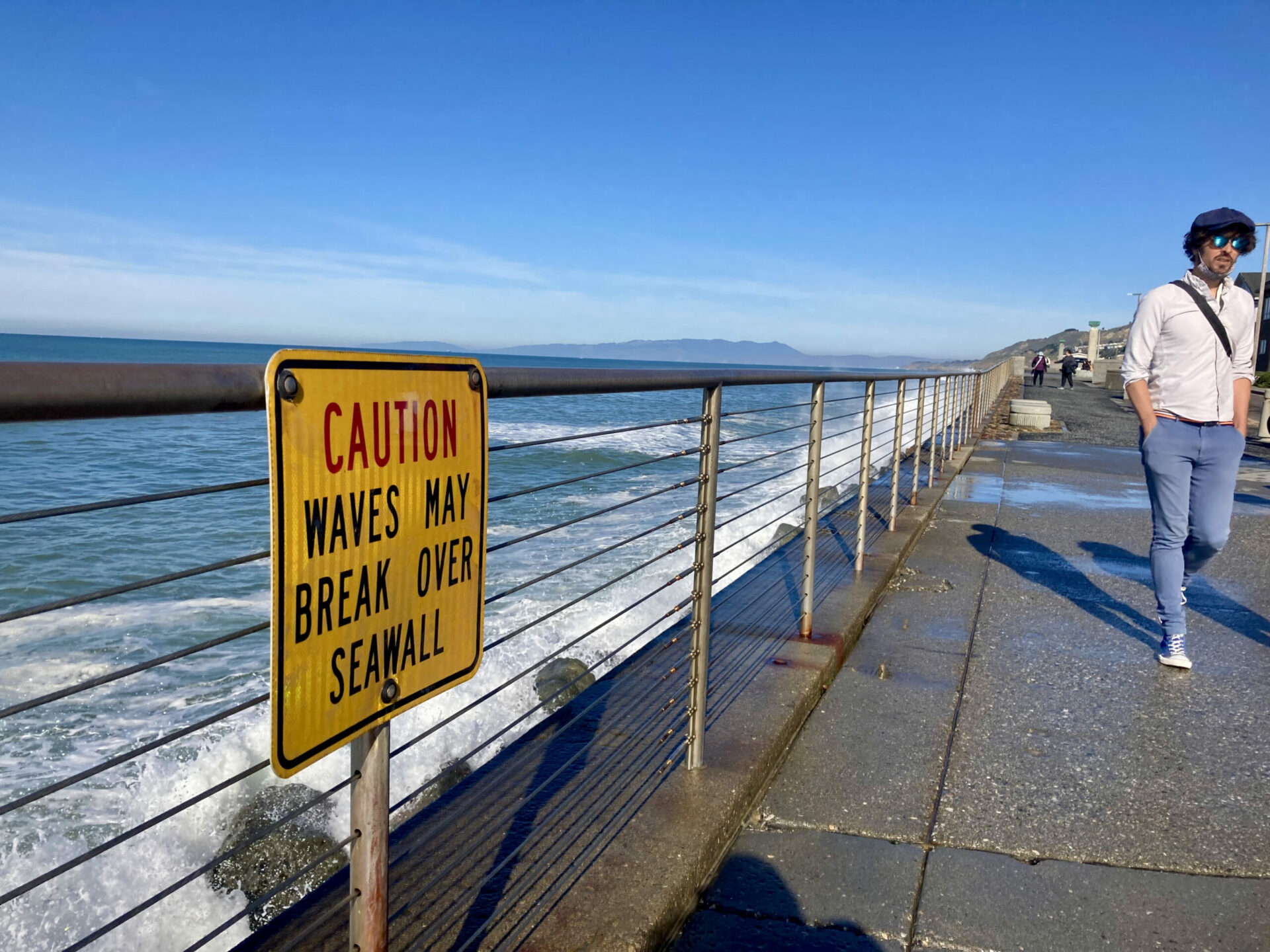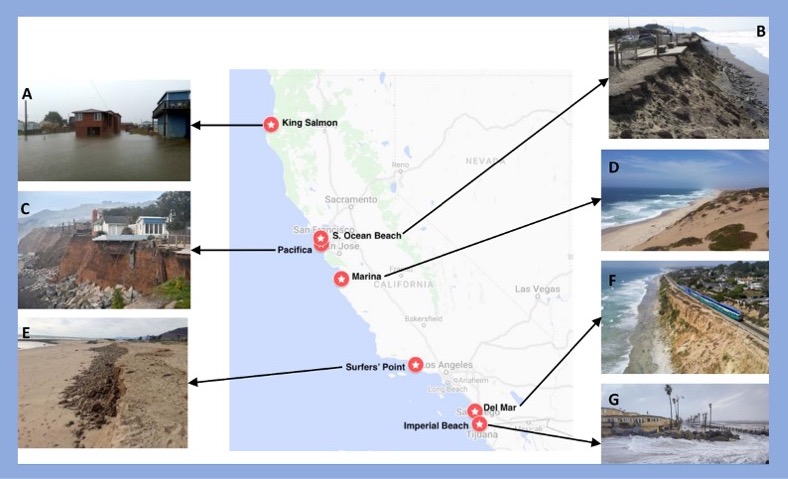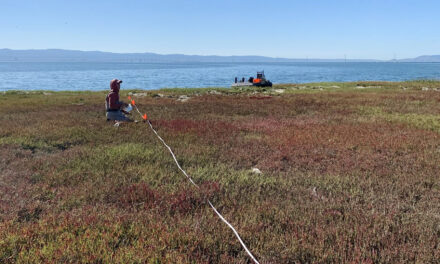Retreat By Any Other Name
To prepare for the ocean moving in, many waterfront structures will have to move out. But don’t call it “managed retreat.”
It’s one of many conclusions a group of scientists drew from a study of how seven Californian towns and cities tried to plan for rising seas, with wildly different results.
“Retreat can conjure failure, and nobody wants to be managed,” explained the study’s corresponding author Amanda Stoltz at the California Social Coast Forum this March. Part of the problem is the term itself. One Pacifica resident quoted in the study commented, “Managed retreat’ is a code word for give up — on our homes and the town itself.”
Managed retreat from sea level rise, or planning to move property and infrastructure to higher ground, elicited strong opposition from four of the communities Stoltz and her coauthors examined. But the practice was accepted, even embraced, in three others.
The seven locations where a team of scientists examined reactions to managed retreat planning. Source: Stoltz et al., 2021.
Affluence often aligns with stronger resistance to relocation. But an even stronger factor could be how much private versus public land is imperiled. In wealthy San Francisco, a lengthy process of negotiation triumphed with a plan for managed retreat of a beloved public beach, while residents of the remote northern town of King Salmon rallied against the suggestion of relocating from their homes. Nearly three-quarters of the town qualifies as “economically disadvantaged” by federal criteria.
Acceptance of managed retreat also hinged on how early in the planning process community members were consulted. Consistent communication reaped fruitful agreements in places like Marina in Monterey County, but fell through in Imperial Beach near San Diego, where fearful, conspiracy-tinged messaging infected the discourse faster than local officials could get ahead of it.
The importance of language choice cropped up in almost every location. One conservative retreat-resistant town had residents who didn’t approve of the term “sea-level rise,” although they acknowledged that flooding had grown vastly more common over time. In Del Mar, a wealthy seaside enclave with a renowned racetrack, the term “managed retreat” was scrubbed from the policy docket after vociferous public opposition — yet part of their adaptation plan states, with no apparent trace of irony, that they will monitor flooding frequency to determine whether it “is becoming unsustainable to rebuild in the same location.”
Since the study was published, Stoltz has noticed more chatter about managed retreat (or ‘graceful withdrawal,’ as she suggests calling it.) A recent bill supporting revolving loan funds for municipalities to buy threatened properties died on the governor’s desk, with Newsom insisting on a more integrated state-level approach to the issue. Regardless of how sea-level rise policy progresses, Stoltz hopes that planners will take note of their neighbors’ early successes and failures as more municipalities confront what to do about the half-million California homes in the path of the rising sea.
“You can’t just go in with solutions and think that they’re going to be accepted,” she says. “Even if the science is really strong.”
Other Recent Posts
Gleaning in the Giving Season
The practice of collecting food left behind in fields after the harvest is good for the environment and gives more people access to produce.
New Study Teases Out Seawall Impacts
New models suggest that sea walls and levees provide protection against flooding and rising seas with little effect on surrounding areas.
Oakland High Schoolers Sample Local Kayaking
The Oakland Goes Outdoors program gives low-income students a chance to kayak, hike, and camp.
Growing Better Tomatoes with Less Water
UC Santa Cruz researchers find the highly-desired ‘Early Girl’ variety yields more tomatoes under dry-farmed conditions.
Santa Clara Helps Homeless Out of Harm’s Way
A year after adopting a controversial camping ban, Valley Water is trying to move unsheltered people out of the cold and rain.
The Race Against Runoff
San Francisco redesigns drains, parks, permeable pavements and buildings to keep stormwater out of the Bay and build flood resilience.
Learning the Art of Burning to Prevent Wildfire
In Santa Rosa’s Pepperwood Preserve, volunteers are learning how controlled fires can clear out natural wildfire fuel before it can spark.
Martinez Residents Want More Than Apologies — They Want Protection
After a 2022 release of toxic dust and a February 2025 fire, people in the northeast Bay town are tired of waiting for safety improvements.
Weaving Fire Protection Out Of What’s Already There
A new Greenbelt Alliance report shows how existing vineyards, grasslands, and managed forests can slow wildfire and save vulnerable homes.
Fall Plantings Build Pollinator Habitats in Concord
Community groups, climate advocates and a church are coming together to plant pollinator gardens as monarchs, bees see population declines.











